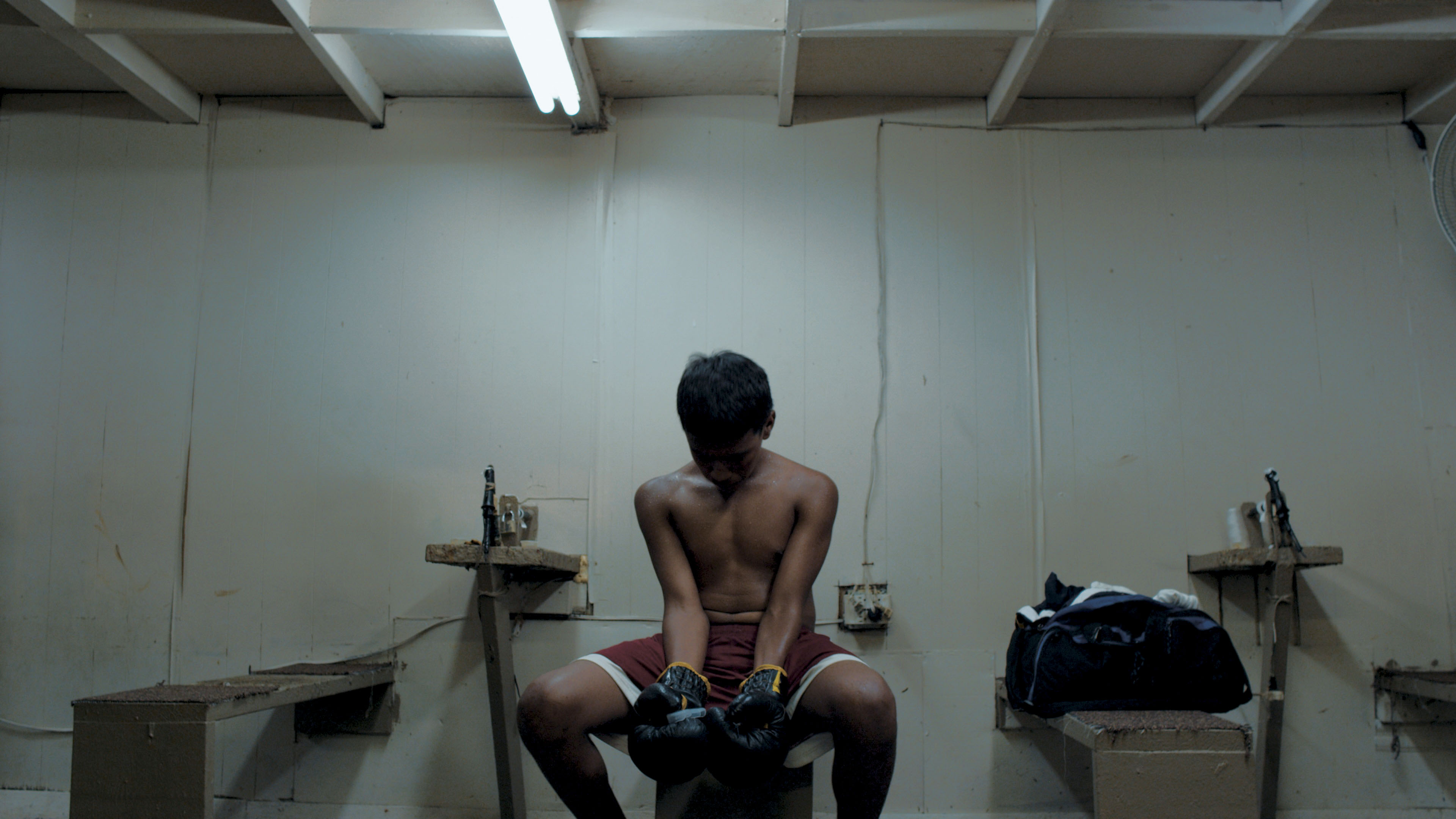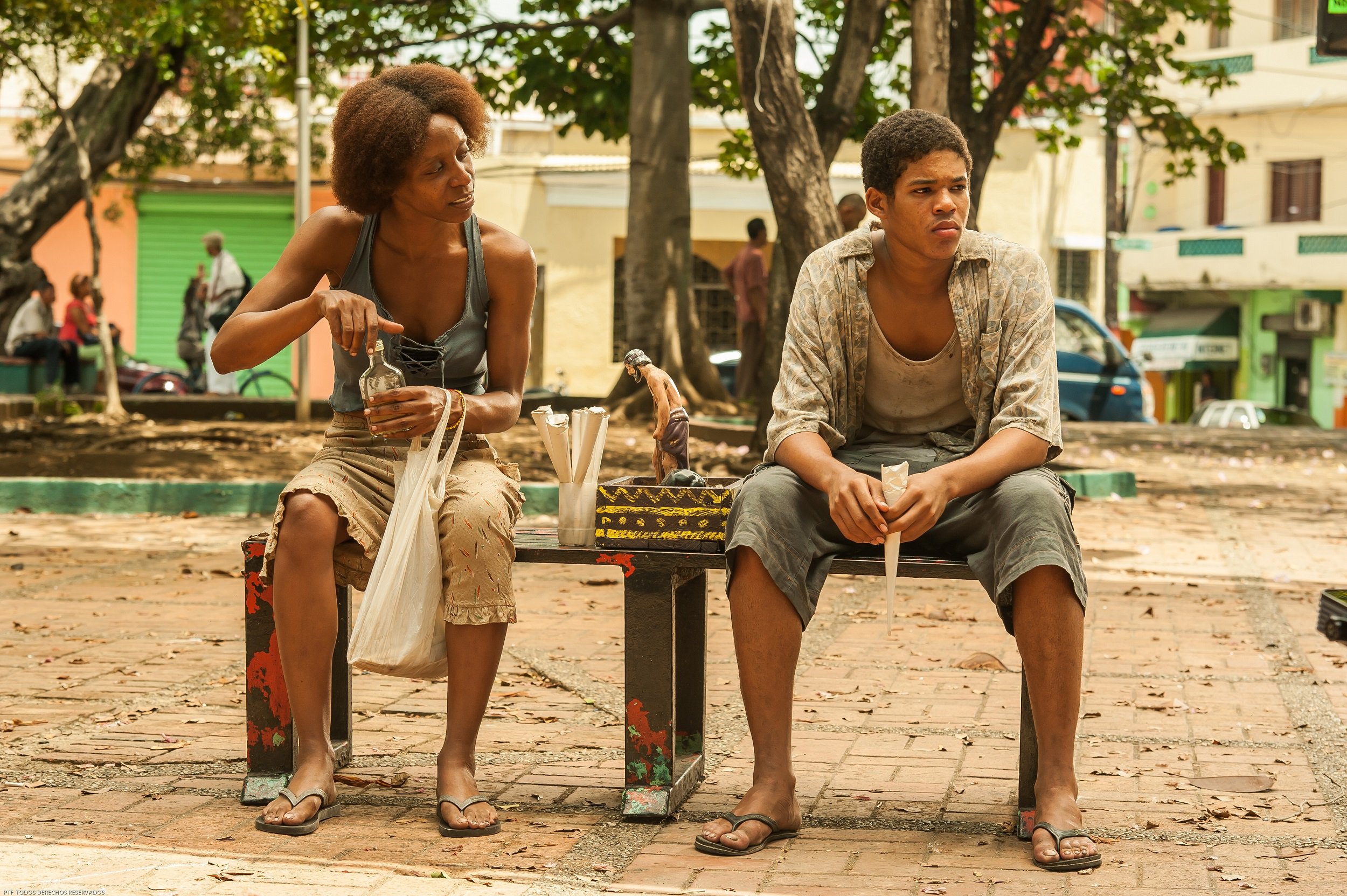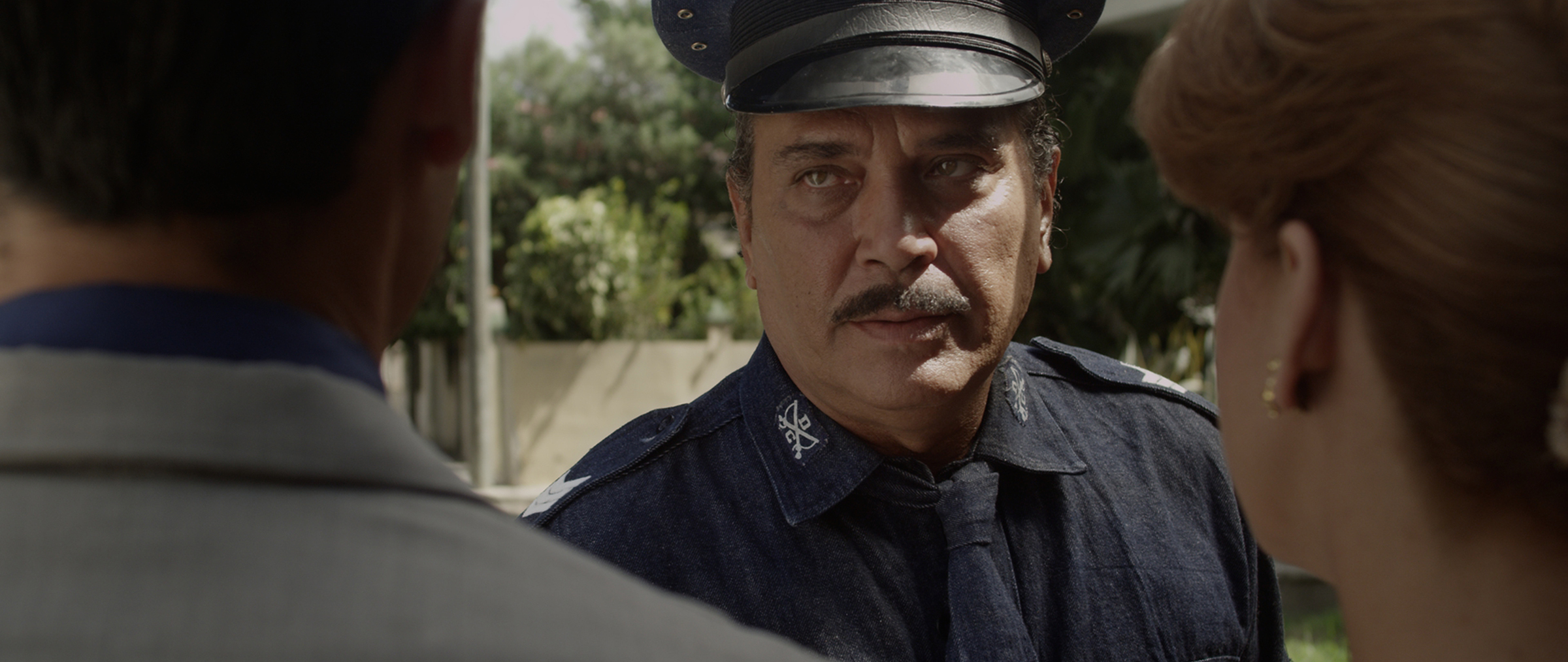Sexo, pudor y lágrimas. You really can’t deny the impact those three words have had on Latin American cinema this past decade and a half (besides being the actual title of a 1999 Mexican film.) At the Miami Film Festival this year, for example, those first two (sex and shame, and lack thereof) took center stage in ambitious films that used them to tackle larger social issues.
Angel Manuel Soto’s La granja (The Farm), for example, may read like a Puerto Rican riff on Amores Perros given its focus on the drug trade via a series of interlocking stories, but its most exciting and transgressive scene is the sex scene at its opening. Young couple Sara and Bryan (Yulianna Padilla and Marcos Carlos Cintrón) enjoy a heated sexual encounter while being observed by a carefully placed camera across their bed and by Sara’s younger brother who’s peeping from the other side of the door.
It’s a scene that sets up the central focus of the film (Sara, as we learn, is an addict, her boyfriend a dealer) but which luxuriates in the naked bodies of its two performers. Unlike the glossy post-coital scenes we usually get in Hollywood, both characters here are overheated and soaked in beads of sweat — it’s clear they enjoy being caught on camera, it adds to the experience. The sex tape, of course, becomes a crucial piece of the puzzle Soto is careful to lay out, kickstarting the fateful ending to which the film builds towards. But just as with his other characters, which include a boxer in the making and a middle-aged woman hoping to get pregnant, the body is put on full display here, with sexual desire bubbling up even amidst a world full of violence and death.
That is also the case in the two Cuban historical films playing at the festival which weave sex and death together while reframing the storied history of the Caribbean island. Offering a decidedly different look at Cuban history, Agusti Villaronga’s El rey de la Habana (The King of Havana) and Jessica Rodriguez’s Espejuelos oscuros (Dark Glasses) give voice and screen time to characters and stories that too often are found at the margins. Villaronga and Rodriguez have history in their mind, but their films seem more preoccupied with what happens de la cintura para abajo. These are steamy, overtly sexual attempts at rewriting official history.

Take El rey de la Habana. The film opens in 1994 with a pair of young Cuban boys at the top of a rickety building in Havana pleasuring themselves to the sight of a voluptuous neighbor who’s all too happy to indulge her admirers. She makes sure her tight t-shirt gets wet as she washes her clothes; she may be coy but she’s fully aware of the effect she has on her young neighbors. It’s perhaps one of the tamest scenes in Villaronga’s adaptation of the Pedro Juan Gutierrez novel of the same name. Soon after, the boys are found out by their angry mother who accidentally electrocutes herself while fighting with one of her sons who, unable to deal with this bizarre turn of events, jumps to his death. And that’s just in the first five minutes! The lone brother left behind, Reynaldito is taken to juvie, charged with double murder. When he returns to Havana two years later, his large member (“su pinga de oro,” as one character puts it and which Villaronga lets his audience see in all its glory) allows him to seduce his way into the life of that neighbor he used to spy on, Magda (Yordanka Ariosa).
This short synopsis should give you a hint as to why the Cuban government didn’t allow Villaronga, known most recently for his award-winning Pa negre, to shoot in Cuba. He and his crew filmed in the Dominican Republic instead. Not only is the “Dirty Realism” of Gutiérrez’s novel kept intact, but the film ends up feeling like a scathing critique of Cuba’s “Special Period” in the 1990s. Rey, played with swagger by Maikol David, embodies the lazy, charming, and entitled macho who expects women to cater to his financial and sexual needs. He’s a thief and a rogue, doing everything he needs to stay afloat in a poverty-stricken Havana — at one point, for example, he and Magda perform a couples striptease to Wilfrido Vargas’s 90s hit “El baile del perrito” while her brother lets a fey gay man give him a blow job. Of course, that he also shacks up with Magda’s neighbor, Yunisleidi, a trans woman played by Héctor Medina (of Viva fame), muddles any type of easy gender conformity we may be tempted to draw. The film is intent on breaking open as many taboos as it can get its hands on, but ultimately it speaks to the disenfranchised — those left behind by the state and ignored by society at large.

Espejuelos oscuros may be a more classically constructed film but it’s another attempt at revisiting Cuban history with sexually active women, homosexuals, and petty criminals taking center stage. Rodriguez opens her film with a fearful blind woman harboring a criminal on the loose. If she doesn’t help him, he’ll take it out on her only companion: her cat. But Esperanza (Laura de la Uz) is more cunning than she looks. To earn herself some time, she convinces her captor (Luis Alberto García, also of Viva fame) to read some of the stories she’s been writing down (she’s a great typist despite her blindness). These, she tells him, are true stories. They also all take place during pivotal points for Cuba: in the seventies, when the Revolution is at its peak; in the fifties, amidst the student riots against Batista; and during the War of Independence at the end of the nineteenth century. Each story we see played out (with de la Uz and García playing the main roles in each), a vivid reminder of the stark conditions of each period which force characters to take extreme measures to merely survive.

Esperanza mostly uses the stories as a way to delay the eventual rape that she knows is on her captor’s mind but with every new story we get to witness, we see various scenes of sexual violence that go against the social mores and norms of their times. A young woman seduces a party leader only to bludgeon him to death (later claiming he’d sexually assaulted her); another poisons a man upon realizing he’s not a friend of the Cuban cause.
In these films, sex is as much of a weapon as politics and violence. More importantly, they make sex and sexuality a crucial aspect of Cuban history — these are revisionist attempts at portraying the perils of sexual liberation in Cuba, which it seems, is still a work in progress.







